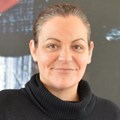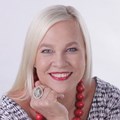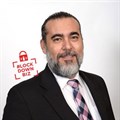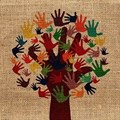We chatted to Duncan Luke, CEO of The Social Collective, to get his take.
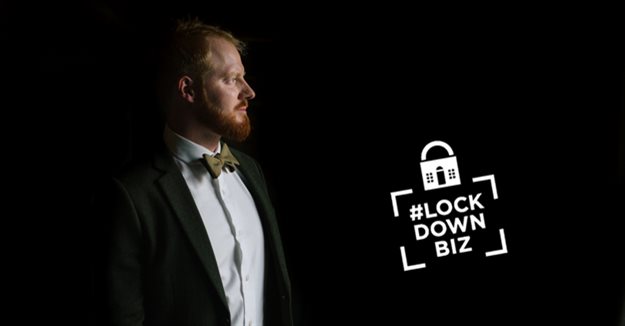
Duncan Luke, CEO of The Social Collective
What was your initial response to the crisis/lockdown and has your experience of it been different to what you expected?
Duncan Luke: The Social Collective acted quickly and enforced work from home for employees. We have been sensitive to our clients' changing needs during this time.
Comment on the impact of the Covid-19 pandemic on your organisation or economy as a whole.
Luke: We sense that the slow-down effects will only be felt a few months from now. That said, we are seeing budgets grow thin, and spending is being directed to what is truly valuable.
How is your organisation responding to the crisis?
Luke: With an increase in donations during the current pandemic, we have built and are promoting a donation tax calculator to help inform individuals of the net cost and tax rules of donating during this time - considering donation schemes like the Solidarity Fund gaining support. We have also launched several monitoring and reporting tools to assist companies internally with managing the compliance and reporting needed for Covid-19 regulations.
Comment on the challenges and opportunities.
Luke: The world is changing ever so quickly due to this global pandemic. One hundred years ago, the Spanish Flu created an enabling environment for the ideals behind capitalism to thrive and, perhaps now we are at the beginning of the end of capitalism as we have come to know it. Employees are spending more time with their loved ones, connecting with friends via video calls and our spending patterns have changed. To some extent, a deeper assessment of our values has been forced upon us. In his book, Capital in the Twenty-First Century, Thomas Piketty proposes the idea that an economic system generally takes one hundred years to fully form and become ready to evolve. Perhaps the current circumstances prove that Piketty is correct.
Digital opportunities are all around us, however, before we look for solutions, we need to have the unique skill of being able to understand client problems.
There are no quick profits in a pandemic. A challenge is that there are most likely no quick profits or sustainable money to be made in the next three months. It is time to pause, think and unpack what is valuable to us.
There is a major threat to most companies, and some will not make it. We will lose innovations and entrepreneurial bravery, with client spending slowing dramatically with a 10% (at least) turndown in our economy expected.
How has the lockdown affected your staff? / What temporary HR policies have you put in place regarding remote working, health & safety, etc.?
Luke: Mental health issues and challenges have come into the spotlight. Remote working requires a more ‘open’ and personal check-in before we dive into the pressures of the day. We are finding ourselves in our clients' and colleagues' personal spaces with children joining calls, while video calls are being taken from bed in the colder winter mornings.
How are you navigating ‘physical distancing’ while keeping your team close-knit and aligned?
Luke: We connect online and find that humour is important. A fifteen minute check-in at the start of each working day is critical during this period - we have to talk about priorities and respond quickly to what is unfolding for the day.
Have you had to change the way you operate?
Luke: No, we have been implementing various types of work since we started eight years ago. The shift has come in our mode of meetings, with more focus on visual presentations for our clients.
Context is everything. We need to keep our presentations engaging. Distractions from home are just a glance away from the 13-inch screen in front of you. You just have to peer to the left or right and you are in your personal space. There is no denying the reality that our colleagues, too, have personal lives.
Any trends you’ve seen emerge as a result of the crisis?
Luke: Sustainable business strategy. With unemployment expected to reach as high as 50% and businesses unable to pay bills, it is a time to be creative in products, solutions, pricing which offers more value and an overall more sustainable business strategy. Few short-term solutions are going to cut it when the state dictates what is possible during a global pandemic. More humble solutions are emerging which are aiming for purpose before profits.
A roadmap for giving and understanding of solidarity. Our government is taking strides in serving the people and encouraging people to do the same. Individuals are thinking about what is important to them when it comes to giving their resources. Let this set the tone for the future, in building long-term giving relationships.
What do you predict the next six months will be like?
Luke: Purpose-led leadership will emerge. Purpose defines who we are and how we work. Crisis needs strong leadership - individuals who take advantage of this situation will be filtered out as we lay the foundation for meaningful and purposeful work.
Marc Lubner, Hedley Lewis, Kelly du Plessis, Lauren Pretorius, Cassey Chambers 4 May 2020 Your key message to those in the sector?
Luke: Digital does not provide all the answers. It is time for critical thinking and to re-assess the way we design and solve problems in our organisations. Digital is finally a building block and not just the end solution.
































